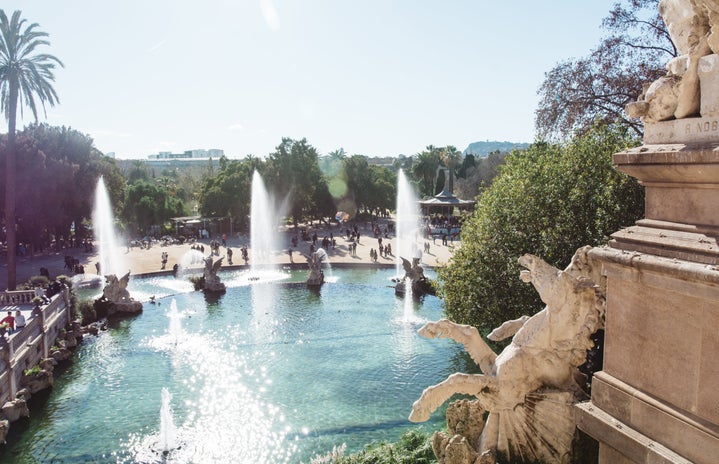This summer, I transformed from a Politics and International Affairs student at Wake Forest University to a Scientific Communications Officer working at the Seville Biomedical Research Institute in Spain. This unique study abroad opportunity proved to be a whirlwind of cultural shocks, adjustments, and experiences for the nine weeks I spent on the other side of the world.
During my first few days in Seville, Spain, though I was fighting a fierce battle with jet lag, my brain became a sponge that absorbed every piece of information that would aid me in looking or acting the least like a tourist as possible. I quickly added the word “vale,” (the European Spanish word for “okay”) to my vocabulary bank, a term that I used in almost every conversation to ensure others that I understood them, even if my expression suggested otherwise. I shortly learned that taking a “siesta” during the day is not just a dream that over-worked Americans made up, but rather a scheduled time for relaxation and rejuvenation during the hottest hours of the day in Spain. If you are caught out and about during these siesta hours, when most shops are closed while the sun’s rays blare bright from the sky, you will be flagged as an outsider almost immediately. In addition to adapting to this daily hibernation, I adjusted my eating schedule to that of a local Sevillana, which consisted of a light breakfast at 9:00 am, large lunch around 3:00-4:00 pm, and a light dinner as the sun goes down at 10:00 pm (which before this summer was my ideal bedtime!).
My internship in Seville was also a whole new ballgame. I was allowed to set my working hours each week as long as I completed my tasks and fulfilled my time log requirements promptly. I typically worked from 10:30 am to 2:30 pm, Monday through Thursday, which gave me ample time to experience city life in Seville in the light of the morning and stars of the night, eat each meal with my house mom and flatmate, and explore the rest of Spain on my three-day weekends. When I clocked in, my work revolved around developing audiovisual content for the Seville Biomedical Research Institute’s social networks and website. Specifically, I created informational videos—both in Spanish and in English—regarding various research projects that the Institute endorsed to help strengthen the corporate identity of these projects and inform the public about the Institute’s research. I went on-site weekly to meet with researchers of various disciplines and discuss their scientific outputs to complete these projects. Thanks to my background in Communications —and increasing proficiency in Spanish— I was able to successfully explain each research project in a way that connected with scientists, and non-scientists, all across the globe.
My time at the Institute this summer was astronomically fulfilling. Each day of the program I learned, gained experience in a professional setting, and became more comfortable with a foreign language. By choosing this internship program in lieu of a traditional study abroad semester program, I knew I would be immersed in the culture and happenings of a foreign, Spanish-speaking city. Because my primary goal was to improve my fluency in Spanish, I could not imagine a better way to do that than getting real-world experience in the language. My time as a global intern allowed me to do just that. I stepped outside my comfort zone, integrated myself into a new cultural worldview, and personally experienced all that Spain has to offer!


